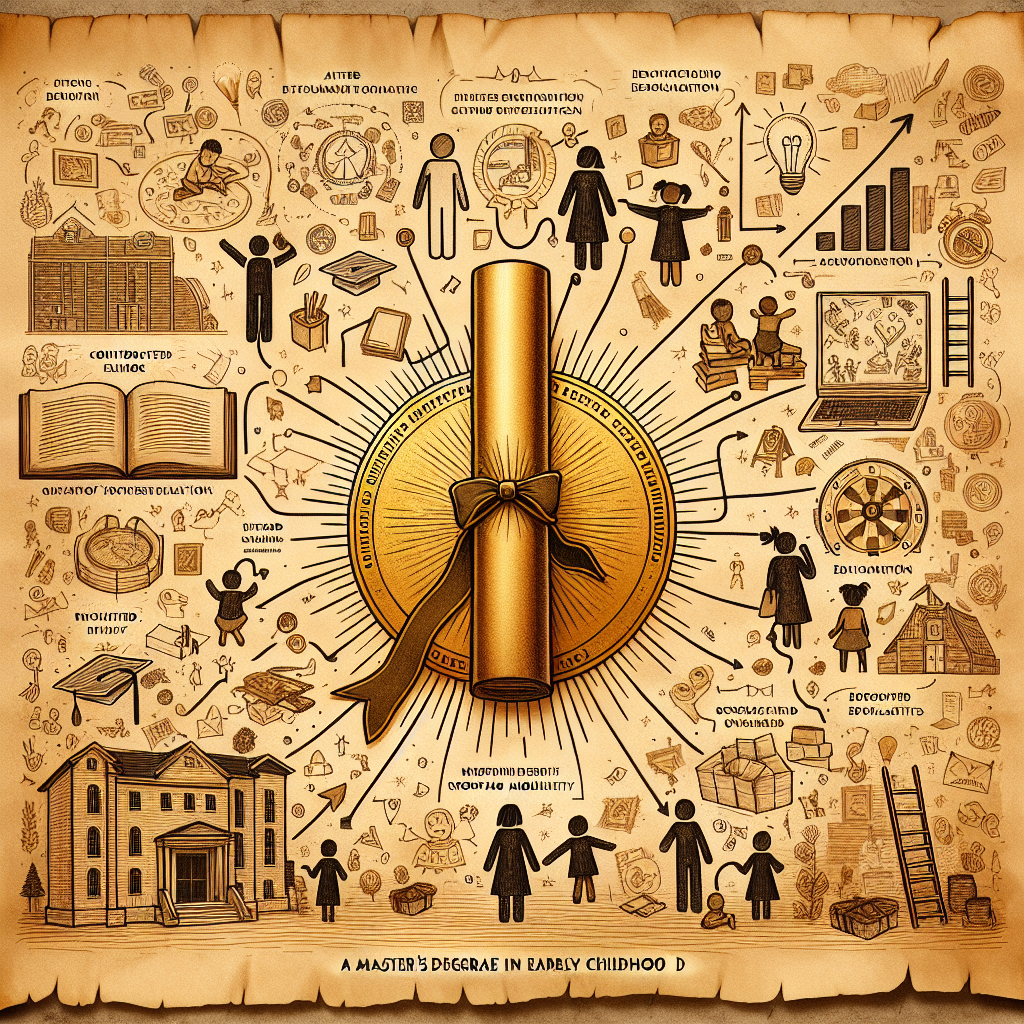Master’s Degree in Early Childhood. Pursuing a master’s degree in early childhood education can be a significant step in advancing your career and deepening your understanding of child development and psychology. This degree can open doors to numerous opportunities in teaching, administration, research, and policy-making. In this article, we will explore the various facets of a master’s degree in early childhood education and why it might be the right choice for you.
Understanding the Master’s Degree in Early Childhood
A master’s degree in early childhood education focuses on the education and development of young children, typically from birth to eight years old. This program is designed to equip graduates with the skills and knowledge needed to support the developmental needs of young children in various educational settings.
Core Components of the Program
The curriculum for a master’s degree in early childhood education often includes courses in child psychology, child development, curriculum design, and teaching strategies. Here’s a closer look at some of these core components:
- Child Psychology Degree: This course delves into the mental, emotional, and behavioral development of children. Understanding child psychology is critical for educators to create effective teaching methods tailored to individual needs.
- Child Development Degree: Courses in child development cover the stages of physical, cognitive, and social development in children. This knowledge helps educators understand the milestones in children’s growth and how to support them at each stage.
- Curriculum Design: This component focuses on creating educational programs that are developmentally appropriate and engaging for young children. Educators learn to design curricula that foster learning through play and exploration.
- Teaching Strategies: Students learn about various teaching methods and strategies to effectively engage young learners. This includes hands-on activities, storytelling, and interactive learning.
Why Pursue a Master’s Degree in Early Childhood?

Career Advancement Opportunities
A master’s degree in early childhood education can significantly enhance your career prospects. Graduates can pursue roles such as:
- Preschool or Kindergarten Teacher: With advanced knowledge, you can become a lead teacher or an educator who specializes in early childhood education.
- Educational Administrator: This role involves overseeing early childhood programs, developing policies, and managing staff.
- Child Development Specialist: Specialists work with children to assess developmental progress and provide support or interventions as needed.
- Researcher or Policy Maker: Graduates can engage in research to improve educational practices or work in policy-making to advocate for early childhood education.
Personal and Professional Growth
Apart from career advancement, a master’s degree in early childhood education contributes to personal and professional growth. It allows you to:
- Deepen Knowledge: Gain a comprehensive understanding of how young children learn and develop.
- Enhance Skills: Improve your teaching skills to better support the educational and emotional needs of children.
- Network with Professionals: Connect with peers and professionals in the field, which can lead to collaborative opportunities and shared learning experiences.
Choosing the Right Program

When selecting a master’s degree program in early childhood education, consider the following factors:
Accreditation
Ensure that the program is accredited by a recognized accrediting body Master’s Degree in Early Childhood. Accreditation guarantees that the program meets specific educational standards and that your degree will be recognized by employers.
Program Format
Many universities offer flexible program formats, including online, in-person, and hybrid options. Consider your schedule and learning preferences when choosing a format that suits you.
Specializations
Some programs offer specializations or concentrations, such as special education, bilingual education, or child psychology. Choose a specialization that aligns with your career goals and interests.
Financial Aid and Scholarships
Explore financial aid options and scholarships that may be available to help fund your education. Many universities offer scholarships specifically for students pursuing degrees in education.
The Impact of a Master’s Degree in Early Childhood

Improving Educational Outcomes
Educators with advanced degrees are better equipped to create effective learning environments that enhance educational outcomes for young children. They can implement evidence-based practices that support children’s cognitive, social, and emotional development.
Advocacy and Leadership
Graduates of master’s programs in early childhood education are often leaders in advocating for high-quality early childhood education. They play a crucial role in shaping policies and practices that benefit young children and their families.
Contribution to Research
With a master’s degree, you can contribute to research that informs best practices in early childhood education. Your work can help identify new strategies to improve teaching and learning for young children.
Master’s Degree in Early Childhood
Master’s Degree in Early Childhood. A master’s degree in early childhood education is a valuable investment in your career and the future of education for young children. It equips you with the skills and knowledge to make a meaningful impact in the lives of children and the field of education. Whether you aspire to teach, lead, or conduct research, this degree offers numerous opportunities for growth and fulfillment.
By pursuing this advanced degree, you are taking a significant step toward becoming an expert in early childhood education, ready to face the challenges and rewards of working with young learners.




